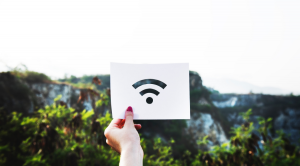Why use content filtering?
What is content filtering?
Businesses and other organizations use content filtering to block employees or customers from accessing certain online content.
Consent for use
Many, if not all, organizations apply acceptable use policies (AUPs) to manage how their network and internet resources are used. For example, most businesses don't want employees accessing NSFW, offensive, discriminatory or harassing content over the office WiFi network.
To comply with the AUP, organizations often implement content filtering measures. This may include blocking access to websites and content that violate the AUP, ensuring that employees cannot access inappropriate information. These filtering measures help ensure that the online work environment is maintained according to the organization's principles and values, while protecting both employees and the work environment from potential issues related to online work. network and internet usage.
Protect
Content filtering plays an important role in protecting networks and systems from security threats such as malware and viruses. By blocking access to malicious websites and content, content filtering offers an effective layer of protection. Not only does it prevent employees from accidentally downloading or accessing files containing malicious code, but it also keeps them safe from online scams. This helps maintain a safe and reliable online work environment, while improving your ability to defend against increasingly sophisticated cyber threats.
Increase productivity
Organizations often apply content filtering to enhance workplace productivity by restricting access to non-work-related websites, such as social networks, games, and platforms. streaming.
The goal of this is to ensure that employees focus on their tasks without being distracted by extraneous factors. However, with people having easy access to such services via smartphones, questions arise about the effectiveness of these access restriction tactics.
Public Wi-Fi
Similarly, businesses that provide public WiFi services, such as coffee shops, airports, and hotels, often use content filtering to protect security and ensure customer safety, while also preventing Block access to illegal or harmful content.
Likewise, universities, schools, and other educational institutions often implement stricter restrictions on their networks than commercial enterprises. This helps maintain a safe and positive online environment for learning and working, while also preventing access to inappropriate or potentially risky content.
Compliance
Businesses often implement content filtering to ensure compliance with industry regulations, legal requirements, and internal policies. This may include implementing data protection regulations such as HIPAA, GDPR or CCPA by restricting employees from sharing sensitive information via email or other communication channels.
Content filtering also plays an important role in helping businesses ensure compliance with industry-specific regulations. For example, a financial institution may be subject to regulations such as the Sarbanes-Oxley Act or the Payment Card Industry Data Security Standard (PCI DSS), which require strict controls on access and data saving. Content filtering can assist in the implementation and enforcement of these regulations.
The other aspect of compliance is record keeping and auditing. Content filtering solutions can provide logging and reporting, helping to audit and verify compliance. These records play an important role in demonstrating that the organization is taking the necessary measures to meet its compliance obligations.
How does content filtering work?
DNS filtering
In addition to web content filtering, DNS filtering is a useful tool that helps protect organizations from phishing and malware threats by blocking access to known malicious domains. This technology has the ability to prevent users from accessing websites that distribute malware or host phishing strategies.
DNS filtering can also be used to block access to ad servers or domains that have been identified for serving online ads. This helps reduce the number of ads that appear during web browsing, enhancing user experience.
VPN Rice is a prime example, offering a DNS filtering tool on every platform, called NetShield Ad Blocker, that blocks ads, malware, and tracking tools, providing a Safer and better online environment for users.
Filter URLs
URL filtering is similar to DNS filtering, except that it blocks content based on its web address. This allows for more granular control than DNS filtering, as it can be used to block specific pages on a site, rather than the entire site. However, it is less useful in blocking other content, such as malware and ads.
White list
Some organizations implement a strategy of blocking access to all web content but allowing access only to previously identified and whitelisted sites. Implementing this strategy aims to protect company resources, while keeping the network environment safe and secure.
Filter keywords
Filtering content based on specific words or phrases is a useful measure to prevent access to specific types or categories of websites. This may apply particularly to blocking access to websites containing gambling or adult-related content.
Government censorship
Authoritarian governments across the globe often implement strategies to block citizens' access to content for political, social, or religious reasons. Similar to the content filtering methods mentioned previously (usually applied at the Internet Service Provider level), governments use their power to implement additional content filtering measures.










